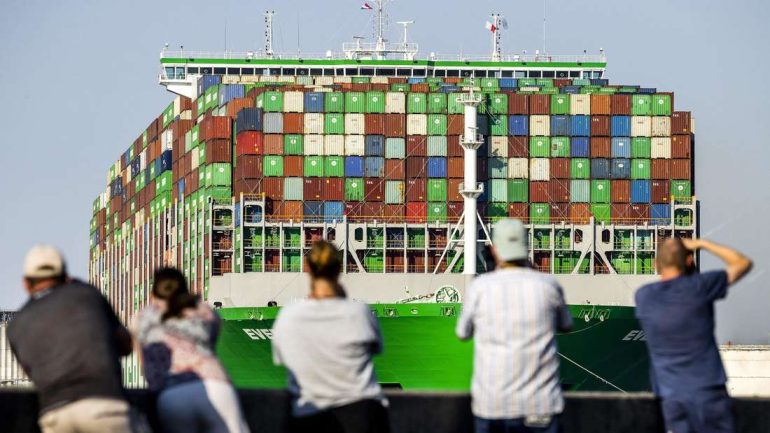
The Bundestag could decide on the controversial SITA agreement between the European Union and Canada. The traffic light government is thus solving a problem which has remained unresolved for years.
German cars to Canada, Canadian machines to Germany – these kinds of transactions should become easier in the future. Because this Thursday the Bundestag will likely decide on a trade deal between the European Union and the North American country. The traffic light government is thus solving a problem which has remained unresolved for years.
Why is trade policy important?
Foreign trade accounts for about a third of German economic output. A third of its prosperity here – jobs, wages, taxes, pensions – has something to do with imports and exports. In this regard, when foreign trade is good it is beneficial. Trade agreements with other countries contribute to this.
Why is international trade controversial?
Church aid organizations such as Miserer and Brot für die Welt, trade unions such as the DGB or environmental organizations such as the Bund often criticize that too much priority is given to the interests of companies. On the other hand the rights of workers, residents, environment and climate protection are neglected. For example, trade agreements could facilitate the import of soybeans from South America to Europe, causing smaller farmers in Brazil to lose their land due to the expansion of large farms. In recent years, these and similar arguments have contributed to the fact that a planned agreement with the United States did not materialize and that the treaty that had already been negotiated with Canada (CETA) was only partially implemented. came into force from
What’s the status with the Canada agreement?
It is signed for six years. As the part under the sole competence of the EU came into force, many customs and import regulations were abolished. Trade between the EU and Canada increased slightly, but is still at a low level of a few percent of economic output. However, several states, including Germany, have not yet ratified certain chapters of the treaty. This should happen this Thursday.
What was the debate about?
The EU-Canada agreement includes rules to protect investments by German companies in Canada and vice versa. If, for example, a Canadian company feels that its rights have been violated, it can sue the German state for damages – and not just before ordinary courts, but before specially appointed arbitral tribunals. Too. This led critics to allege that there was a special judiciary for companies that were making it easier to win billions of euros from the state. Politicians from the SPD also saw it this way, which is why the Grand Alliance has not solved the problem in recent years.
What is the solution now?
The traffic light government, composed of the SPD, the Greens and the FDP, launched an additional “Interpretation Declaration”, which has now been accepted by all EU members. One important point: Canadian investors should not be able to sue against new EU laws, for example to protect the climate, even if their profits fall as a result of the new regulations. Some should not be considered “indirect expropriation” in this way – the declaration reinterprets the relevant passage in the trade agreement. State Secretary for Economic Franziska Brantner (Greens) therefore says that such investor lawsuits are now dismissed.
What do the critics think?
Globalization-critical organizations Attack, Paritätische Gesamtverbund and other groups, among other things, clarify that the final text of the declaration is not yet known and that Canada has not yet ratified it. If the Bundestag votes this Thursday, he’ll buy a boar.
What will happen next?
The SPD, the Greens and the FDP have agreed to target or scrap further trade agreements. These include the Mercosur agreement with Brazil, among others, and agreements with Mexico and Chile. The alliance also wants to revive the failed agreement with the United States. There should be new international arbitration courts, but lawsuits by companies against laws such as protecting climate or labor rights should be rejected.

Devoted web advocate. Bacon scholar. Internet lover. Passionate twitteraholic. Unable to type with boxing gloves on. Lifelong beer fanatic.





